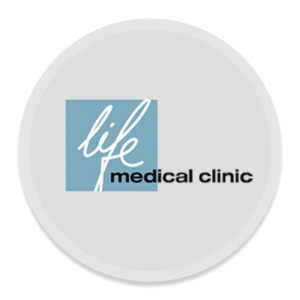Your mother may have urged you to take milk as a kid in order to construct bone strength. As an adult, however, you’re far more inclined to get a calcium supplement rather than drink two glasses of milk every day to safeguard your bones. Calcium is an essential vitamin that may be present in a variety of meals, including dairy products. Bones constantly break down and regenerate. Calcium is required for this activity, but calcium levels in the system tend to decrease with time. Low calcium levels, muscle cramping, bone softening, and PMS are all common reasons for people to take calcium. It’s also used to treat high blood pressure, cancer, strokes, and a variety of other illnesses. Having enough calcium is important regardless of how you do it because women are significantly more susceptible than men to developing osteoporosis, a condition characterised by weakened and fragile bones that puts you vulnerable to fractures.
But the question remains: is calcium good for you?
Before you open that chocolate-flavored calcium chew or take a calcium pill do you keep in mind that calcium supplements may not be beneficial to your bones at all. What’s worse? The supplements may cause serious health issues.
Are there any dangers in taking calcium supplements?
Supplementing with calcium isn’t for everyone. Calcium supplements, for example, should be avoided if you have a health condition that generates excess calcium in your bloodstream (hypercalcemia). Other than this, let’s look at some calcium supplements side effects.
They might make you more susceptible to heart disease
The most contentious claim about calcium supplements is that they could raise the chance of certain types of heart disease, such as heart attack and stroke. To assess the impact of calcium supplements on cardiovascular health, a more solid study is needed.
Some doctors believe that taking calcium with vitamin D can help to mitigate the hazards, but further evidence is needed.
Prostate Cancer May Be Tied to High Levels of Calcium
Researchers discovered that high calcium intake may be connected to an elevated chance of prostate cancer in many studies, the majority of which were observational. Dairy products, according to experts, maybe the source of the problem. The consumption of dairy products, but not calcium supplements, has been related to a higher likelihood of prostate cancer.
Difficult Absorption of calcium
It’s possible that if you take a lot of calcium at once, you won’t absorb all of it. Calcium doses should not surpass 500 mg each dosage for effective absorption, as the body can digest more than this quantity of calcium at one time.
If you need more than 500 mg of supplements per day, divide the dose.
Kidney Stones May Be More Common
Calcium supplementation may raise the chances of kidney stones, according to some data. Getting more than 2,000 mg of calcium each day, according to one researcher, may increase the danger of kidney stones.
Hypercalcemia
Hypercalcemia is a disorder marked by a variety of unpleasant signs, like stomach aches, nausea, restlessness, and depression. It can be caused by a variety of factors, including dehydration, thyroid problems, and excessive calcium supplementation.
Vitamin D pills taken in excess might cause hypercalcemia by enabling your body to take extra calcium through your meals.
Iron absorption may take time
When both calcium and iron are consumed at the same time, your body’s capability to assimilate iron is hampered. If you’re taking iron supplements, make sure you’re not taking them at the same time as calcium supplements. Take them at varying periods of the day if you want the optimum results.
Constipation is a possibility
Certain calcium supplements might cause unpleasant Gastory side effects, including constipation. It’s possible that you’ll have restroom issues if you’re consuming calcium in the carbonate form. For older folks, persistent constipation can already be a problem, so adding binding substances to the mix can exacerbate the problem. If constipation has hit, calcium citrate could be a preferable option.
Calcium in the diet is typically healthy, but more isn’t always healthier, and too much calcium doesn’t offer further bone preservation.
You may be receiving more calcium than you know if you consume calcium supplements and ingest calcium-fortified meals. Check diet and supplement packages to see how much combined total calcium you’re obtaining each day and if you’re meeting the RDA while staying within the higher limit. Until more is learned about these potential calcium side effects, it’s crucial to avoid consuming too much calcium. And If you’re using calcium supplements, make sure to notify your doctor!
Life Medical Clinic
Life Medical Clinic is a network of GP-owned and operated clinics with a commitment to primary healthcare was initially established in 2006 at Waterloo. Our goal is to deliver compassionate, elevated, integrated, complete medical treatment, and we think this can only be accomplished through a long-term partnership.
To that end, we promote and try to make it as easy as possible for you to continue seeing the physician of your preference. Our taglines, “health wholeness community,” encapsulate our purpose to promote wellbeing and wholeness in our society.
You can also read more about the Supplements you should take for Joint Pain



